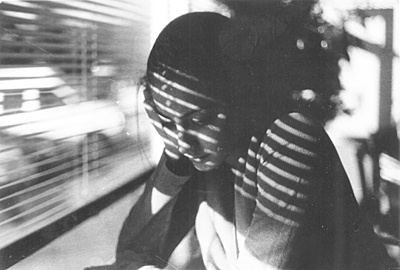All Nonfiction
- Bullying
- Books
- Academic
- Author Interviews
- Celebrity interviews
- College Articles
- College Essays
- Educator of the Year
- Heroes
- Interviews
- Memoir
- Personal Experience
- Sports
- Travel & Culture
All Opinions
- Bullying
- Current Events / Politics
- Discrimination
- Drugs / Alcohol / Smoking
- Entertainment / Celebrities
- Environment
- Love / Relationships
- Movies / Music / TV
- Pop Culture / Trends
- School / College
- Social Issues / Civics
- Spirituality / Religion
- Sports / Hobbies
All Hot Topics
- Bullying
- Community Service
- Environment
- Health
- Letters to the Editor
- Pride & Prejudice
- What Matters
- Back
Summer Guide
- Program Links
- Program Reviews
- Back
College Guide
- College Links
- College Reviews
- College Essays
- College Articles
- Back
Mind Over Media
Exposing children to media at a young age can have a negative effect on their self esteem as they grow up, especially as a teenager. Being a former employee at a day care, I’ve unfortunately seen this a lot. I’d have little girls as young as five asking me “Alicia, why am I not as beautiful as you?” or, “do I look fat today.” hearing those things come out of these girls mouths made me cringe. After hearing it so much I finally asked them why they feel like they look fat and there answer was “ that girl from disney channel is so pretty, and she thinks shes fat, so I think I’m fat.” Half of the time these five year old girls would not want to eat their snack because they thought that eating would make them unattractive. Seeing these effects these little girls have been exposed too broke my heart, and it didn’t just stop there. I also came home almost every day to my 13 year old sister crying because she was convinced that she will never be skinny enough or pretty enough, because thats what society has told her.
It’s not ideal to have half the population sulking, because they aren't as “perfect” as the celebrities they see in the media. The reason we should stop exposing young girls to the media before they understand that none of it is realistic is because of the following. 7 in 10 girls believe they are not good enough in some way. TV, movies, magazines and the internet all attack teens with images and pressures about what they should look like. The problem is, the version in the media isn’t realistic. While looking good on TV or in a magazine has its perks for a celebrity, it has significant flaws for those viewers who think it’s all real.
The images that these girls typically view on magazines are usually fake edited versions of models who weigh 23% less than the average woman. However, millions of teenage girls believe the lies and start to pursue unhealthy routines to try to fit themselves into this impossible look. The American Academy of Facial Plastic and Reconstructive Surgery recently did a survey on a group of 2,700 members and they saw an increase in requests that related to “patients being more self-aware of looks in social media.” The plastic surgeons who did the survey, mentioned that the patients wanted to get the procedures specifically because they didn’t like the way their pictures looked on Facebook, Instagram, or Snapchat. Majority of these patients were teenage girls.
Furthermore, because of the media, teenage girls are being affected by eating disorders. From an early age we are shown images of women and messages from them that reinforce us the idea that to be happy and successful we need to be thin. For example, this was the backround on my sisters phone for a few months:
It is impossible to turn on the tv, listen to the radio or open a magazine, without seeing the message “it is undesirable to be fat”. When teenage girls feel that their bodies don’t match up to supermodels and actors, they feel hopelessly flawed. It has been found that 73% of teenage girls who take diet pills and 79% of teenage girls who make themselves throw up read women’s fitness and health magazine. In Allure magazine, the model and actress Elizabeth Hurley stated, “I’ve always thought Marilyn Monroe looked fabulous, but I’d kill myself if I was that fat” . This just tells teenagers that if they are slightly overweight they need to either diet, or kill themselves, which only leads to other psychological issues. I came across this quote and I wanted to throw up, how could you say that knowing that children look up to you, and are going to think its okay to want to kill themselves because they aren't “skinny”. Around the time I saw this, my sister had actually told me that she wasn't sure that there was a point in living anymore because there was nothing that she could do to make her self prettier no matter how much she tried.
The media is everywhere we look, and there isn’t much we can do to escape from it, but there needs to be a way to restrict the amount teenage girls can see. There also needs to be a way to teach these girls that what they're seeing isn't realistic and that they can't constantly compare themselves to that of what isn't real.

Similar Articles
JOIN THE DISCUSSION
This article has 0 comments.
